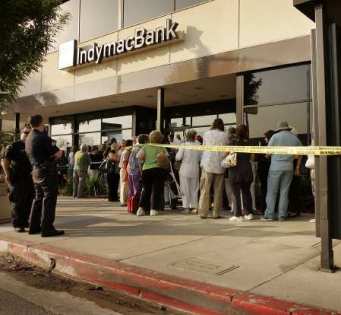The ultimate nightmare for a bank customer is to have uninsured funds in a failed bank. Depositor losses at FDIC insured institutions occur more frequently than most people realize.
Twice already in 2011, depositors at two failed banks have lost money on uninsured deposits. When a bank fails, the FDIC as receiver, will typically find a buyer for the failed bank and all deposits are assumed by the acquiring institution with no loss to depositors.
Problems for large depositors arise when the FDIC is not able to find an acquiring institution for a failed bank. In this case the FDIC will set up a Deposit Insurance National Bank (DINB) to take over the failed bank’s operations and pay off insured depositors. Large depositors who exceed deposit insurance limits are not paid off and potentially face a full loss on uninsured deposits.
Depositors losses have occurred this year when FirsTier Bank, Colorado, and Enterprise Banking Company, Georgia, were closed by regulators and the FDIC could not find a buyer for either failed bank (see this and this). Large balance depositors exceeding FDIC insurance limits remain at risk when a bank fails and the FDIC cannot find a buyer for the failed bank.
Losing money in a failed bank can be a significant risk for large depositors. During 2010, there were 8 payoffs by the FDIC for failed banks that the FDIC could not sell. The 8 payoffs represented over 5% of all bank failures during 2010. During 2009, ten banks failed that could not be sold by the FDIC.
Depositors losses at failed banks and outright threats against the FDIC by depositors who have lost money has prompted an FDIC response. A proposed rule by the FDIC will require banks to take actions to ensure that depositors are better informed about deposit insurance.
According to FDIC Chairman Sheila Bair, “Lack of customer understanding of deposit insurance limits undermines public confidence in the FDIC guarantee which in turn hurts all insured banks and savings institutions. Bank depositors need access to accurate deposit insurance information so they know how to assure that their deposits are protected in full, while banks benefit from the enhanced comfort level of their customers.”
The proposed ruling by the FDIC board will require bank staff who open new accounts or answer questions about FDIC deposit insurance to receive annual training on FDIC deposit insurance coverage. Bank staff would simply be required to ask new account customers if they have other accounts at the bank and if the combined deposits would exceed the current deposit insurance limit of $250,000. If the customer indicates that total deposits may exceed insurance limits, they will be provided with informational literature.
Most depositors do not exceed the recently increased FDIC deposit insurance limit of $250,000. For those customers who do have large account balances, it remains largely their responsibility to ensure that all deposits are insured (see Is My Cash Safe In The Bank?).
Given the large number of banking failures, anyone who is not sure of the FDIC coverage can take the following steps:
- Discuss your situation with the manager at your bank. There are many ways that FDIC coverage can be expanded to exceed the $250,000 limit at the same bank, such as opening an additional joint account with your spouse.
- Multiple accounts opened at different banks under the same name would also be covered up to the FDIC insurance limit, so it is very easy to have FDIC deposit insurance for relatively large amounts.
- The FDIC web site has a sophisticated calculator that can be used to determine if all of your banking deposits are fully covered by FDIC insurance. The FDIC insurance calculator is called Eddie the Estimator and provides a step by step input process and printable report that lets you know if any of your deposits exceed the FDIC insurance coverage.
For anyone with deposits that potentially exceed the FDIC insurance limits, a little bit of time following the above steps can easily prevent a potential loss of savings.

Speak Your Mind
You must be logged in to post a comment.